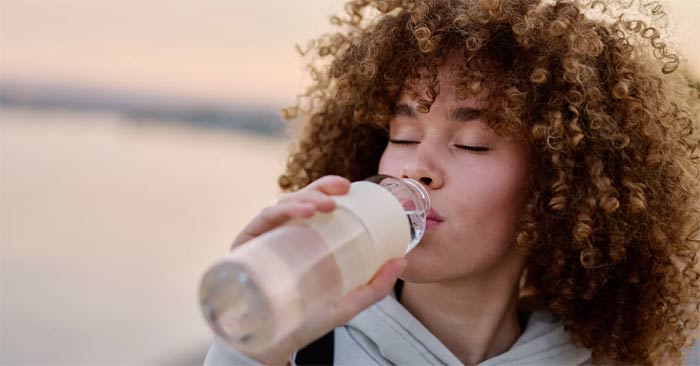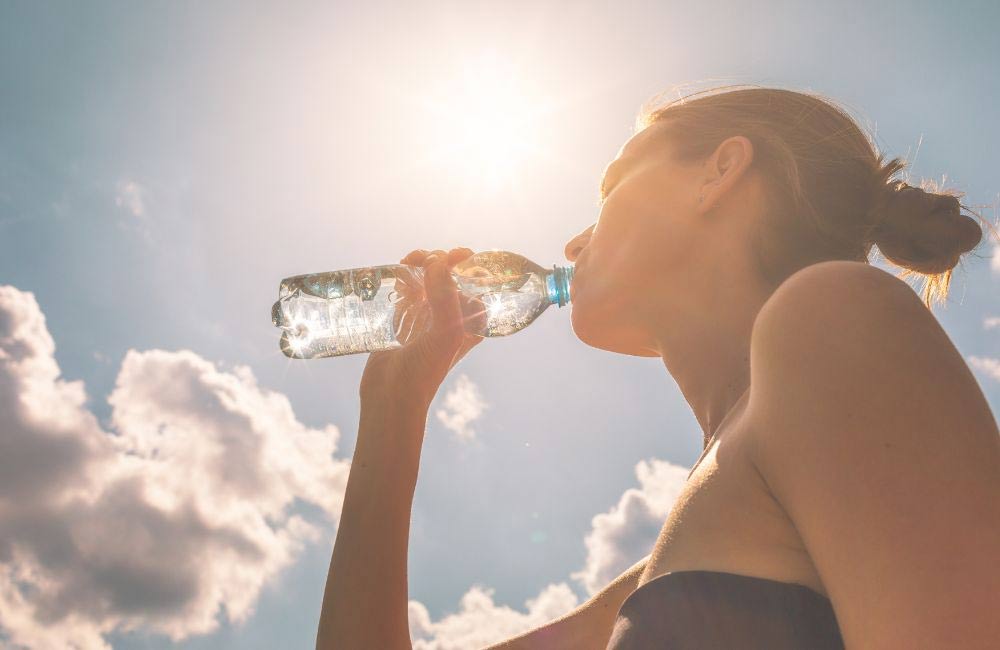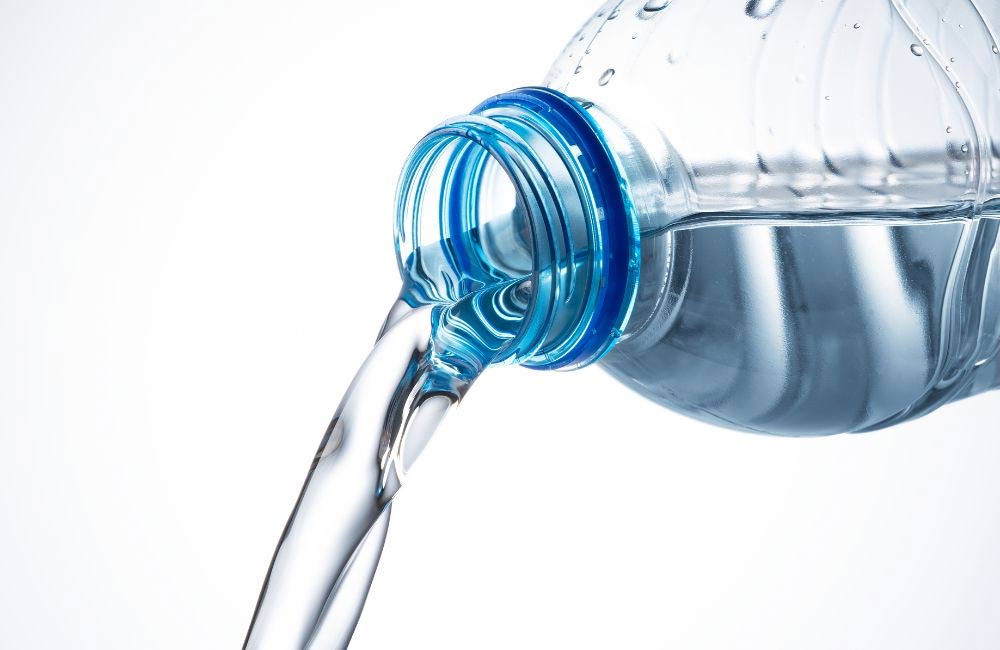Mistakes when drinking water make your skin dry
Drinking water is a basic, simple and necessary daily task. But in fact, it is very possible that you are making some important mistakes in rehydration without even knowing it. That makes you feel lethargic and sluggish.

Of course, staying properly hydrated is important at any time of year, since adequate water intake is essential for almost every process in your body, from thinking to pooping, but it's especially important in hot weather. Heat and humidity both increase sweating, which leads to water loss at a much faster rate. As a result, you're at a higher risk of dehydration in warm weather—and you need to drink more water to make up for it.
Below are common mistakes in hydration that many people make that cause dry skin .
You find eight glasses of water a day to be a no-brainer.
While eight glasses of water is often considered a general guideline for hydration, the belief that it is a 'one- size-fits-all ' magic number is actually a myth. Instead, the ' ideal water intake ' is highly individualized because it depends on a variety of factors: age, weight, activity level, overall health. There really is no one-size-fits-all water intake.

You wait until you are thirsty to drink water.
Thirst is an often misunderstood sensation. Rather than being a warning sign that you need to start drinking water , it's actually a wake-up call that you're already dehydrated. In fact, thirst usually doesn't set in until you've lost more than 1.5 liters of water through bodily processes like breathing, urinating, and sweating—so don't wait until then to drink.
Can be rehydrated later
Taking small sips over a long period of time is a much better way to hydrate than drinking a large amount at once. Basically, it's better to space out your water intake throughout the day and not wait. This not only reduces the risk of dehydration, but it also makes it easier on your stomach, preventing bloating and discomfort. Consistency is key here.
Note that gulping down water doesn't mean you'll be back to your original state immediately and fix any dehydration issues. This way, your body won't absorb it all at once. Additionally, delaying the bulk of your fluid intake until the late afternoon or evening can disrupt your sleep, as you may have to get up to urinate during the night.
You drink little water during exercise
Hydration is important regardless of your activity level, but it becomes even more important when you have a workout scheduled. Being dehydrated early on can affect your athletic performance in a number of ways, so drinking enough water before you exercise can help you perform at your best. At the same time, all that exertion will dehydrate you more quickly, so drinking enough water afterward will aid in recovery.
Comprehensive hydration recommendations are also difficult to come by for athletes, but in general, they should drink 16 to 24 ounces of water two hours before exercise and 8 to 12 ounces of water every 10 to 20 minutes during exercise, according to the American Council on Exercise.

You don't keep track of your water intake.
Many people are simply too busy and don't realize how little they drink. That's why it's important to be proactive about your approach to hydration - knowing where you are starting from and whether you need to improve.
If you have trouble remembering to drink water (or are easily distracted), try keeping a water bottle with you as both a visual reminder to sip and a measuring tool. This trick can also help you space out your water intake. For example, let's say you aim to drink about 6 ounces. By 11 a.m., you should have about 2 ounces; by 4 p.m., 4 ounces. Setting a timer every 15 to 20 minutes can also help establish a good water-drinking habit.
You should read it
- ★ Water will become 'poison' if taken at 5 times later
- ★ What if you drink water as soon as you wake up?
- ★ Coconut water is very good, but drinking in these ways only 'picks up the body'
- ★ 7 great things will happen if in 1 month, you only drink filtered water
- ★ What is the difference between distilled water, spring water and pure water?